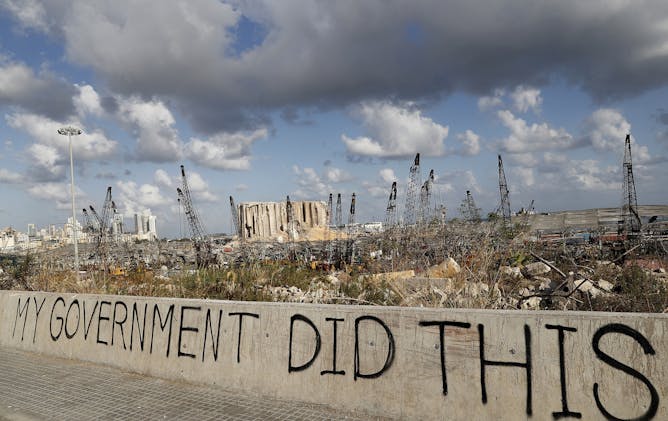|
If you’re feeling stressed right now, you’re not alone. One-quarter of Canadians report experiencing high levels of stress on most days and almost half of Canadians say their stress levels have increased since the pandemic began. And unfortunately stress affects how we treat the people around us — sadly, its often not in a good way.
Today in The Conversation Canada, Anita Tusche from Queen’s University talks about recent research she undertook with colleagues to examine how stress affects generosity and who is particularly vulnerable to changes in social behaviours when under pressure.
Surprisingly, they found that higher bodily stress responses diminished altruism and that participants responses to stress depended on their ability to understand others’ inner mental states. She writes, “Participants with high mentalizing skills were the ones who were particularly vulnerable to becoming more selfish under stress.”
Also today:
Do you listen to podcasts? The Conversation Weekly would like to hear about your favourites — or why you don’t listen to them. Please take this five-minute survey.
Nyà:wen (thanks),
|

Targeted interventions that reduce stress levels may improve altruism among Canadians.
(Christian Erfurt/Unsplash)
Anita Tusche, Queen's University, Ontario
While it might not be the first thing that comes to mind, new and effective ways to reduce stress in vulnerable members of our communities could be key to ensure supportive social environments.
|

Damaged wood houses after the San Francisco Earthquake, April 18, 1906.
(Shutterstock)
Shona L.van Zijll de Jong, Queen's University, Ontario
About 10 million people live in Canada’s earthquake-prone zones. Yet few have practical knowledge of what to do with new early warning system alerts which aims to save lives and protect livelihoods.
|

The U.S. military released a defoliant called Agent Orange over the South Vietnam countryside to weaponize the forest during the Vietnam War as part of the Operation Ranch Hand project.
(Shutterstock)
Fionn Byrne, University of British Columbia
Green spaces can be used as non-coercive modes of warfare to further social cohesion and diminish the likelihood of insurgency.
|

Common approaches used to encourage internationally educated health-care professionals to work in smaller communities often focus primarily on attraction, but do not address the reasons why they tend to leave.
(Shutterstock)
Natalya Brown, Nipissing University; Melissa Kelly, Toronto Metropolitan University; Victoria Esses, Western University
Small communities struggle to retain needed internationally educated health-care professionals. Challenges will persist until the compounding effects of social and professional isolation are addressed.
|

Google’s search results often misidentify controversial characters, potentially contributing to the spread of misinformation.
(Nathana Rebouças/Unsplash)
Ahmed Al-Rawi, Simon Fraser University
Google search algorithms ofte pull up misleading descriptors for controversial people, and results can differ across languages. Understanding how these algorithms function can address misinformation.
|

Sur cette photo prise le 9 août 2020, cinq jours après l'explosion meurtrière dans le port de Beyrouth, on peut voir un graffiti où il est écrit: « Mon gouvernement a fait ça ». La corruption et l'incompétence de l'élite dirigeante libanaise a fait sombré le pays dans une crise sans précédent.
(AP/Hussein Malla)
Paul Makdissi, L’Université d’Ottawa/University of Ottawa; Ali Fakih, Lebanese American University; Myra Yazbeck, L’Université d’Ottawa/University of Ottawa; Rami Tabri, University of Sydney; Walid Marrouch, Lebanese American University
Des chefs de milices et leurs alliés politiques ont établi un système économique et politique de kleptocratie redistributive. Ils extraient et se partagent le maximum possible de l’État libanais.
|
Ukraine Invasion
|
-
Paul Baines, University of Leicester
Ukraine’s savvy president is beating Putin at his own game.
-
Nicholas Westcott, SOAS, University of London
The Ukraine crisis is significantly increasing political stress and potential conflict throughout Africa.
-
Frank Ledwidge, University of Portsmouth
Intelligence reports say Russia’s latest weaponry is not as devastating as it might look.
|
|
Arts
|
-
Catherine Baker, University of Hull
Ukraine’s Eurovision contestant is building on a wave of support for the nation’s music in past contests.
|
|
Environment + Energy
|
-
James Dyke, University of Exeter; Julia K. Steinberger, University of Leeds
Every tenth of a degree makes climate change significantly worse.
|
|
Politics
|
-
Linda C. McClain, Boston University
Lawmakers in the US Senate are set to vote on a bill that would enshrine abortion into law. But is there a route to legislation?
|
|